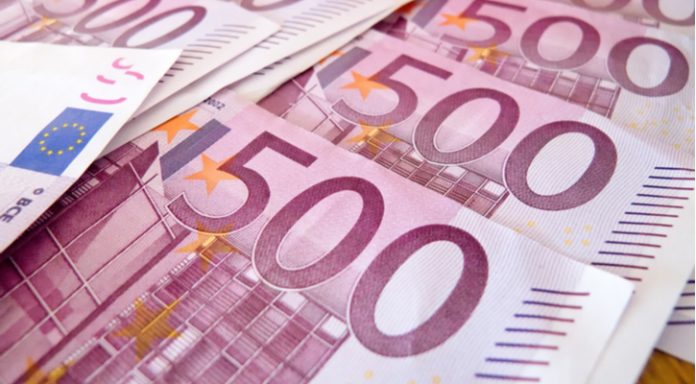The pound euro exchange rate finished trading on Thursday almost flat at €1.1315. The pound dropped in early trading pulling the pound euro exchange rate lower. The euro lost ground in the afternoon, pushing the rate higher.
| What do these figures mean? |
|---|
|
When measuring the value of a pair of currencies, one set equals 1 unit and the other shows the current equivalent. As the market moves, the amount will vary from minute to minute. For example, it could be written: 1 GBP = 1.13990 EUR Here, £1 is equivalent to approximately €1.14. This specifically measures the pound’s worth against the euro. If the euro amount increases in this pairing, it’s positive for the pound. Or, if you were looking at it the other way around: 1 EUR = 0.87271 GBP In this example, €1 is equivalent to approximately £0.87. This measures the euro’s worth versus the British pound. If the sterling number gets larger, it’s good news for the euro. |
Data showing that the UK economy was growing at a slower rate than analysts had forecast weighed on the pound early on in the previous session. UK GDP for the fourth quarter printed at 0.4% quarter on quarter, below the 0.5% city analysts had anticipated. Meanwhile the year on year figure showed growth of just 1.4%, below the 1.5% that analysts had pencilled in. This means that the UK economy is the slowest growing major economy in the world.
The decline in economic growth was mainly due to a slowing of business investment. Business are holding off with making investments and investment decisions until there is more clarity surrounding Brexit.
Market participants fear that a weaker economy will make it harder for the Bank of England to raise interest rates in the Spring. Therefore, as the perceived odds of a rate rise fell, so did the pound.
| Why do raised interest rates boost a currency’s value? |
|---|
| Interest rates are key to understanding exchange rate movements. Those who have large sums of money to invest want the highest return on their investments. Higher interest rate environments tend to offer higher yields. So, if the interest rate or at least the interest rate expectation of a country is relatively higher compared to another, then it attracts more foreign capital investment. Large corporations and investors need local currency to invest. More local currency used then boosts the demand of that currency, pushing the value higher. |
With no high impacting UK data due for release today, investors will watch for any Brexit headlines. Any signs of progress in talks over the transition period could boost the pound.
Euro drops on cautious ECB minutes
The European Central Bank released minutes from its monetary policy meeting in January. The minutes showed that policy makers remained cautious towards taking steps to tightening monetary policy, given that inflation remains so far below the central bank’s 2% target.
Today investors will get more up to date information on inflation in the eurozone with the release of CPI figures for the region. The ECB minutes showed that inflation remains obstacle factor for the ECB for tightening policy, therefore today’s data will be closely watched.
Analysts expect inflation for the bloc to have slipped month on month to -0.9% in January, down from 0.4% the previous month. On an annual basis inflation is expected to have fallen from 1.4% to 1.3% in January, highlighting the problem that the ECB is having trying to boost inflation.
|
This article was initially published on TransferWise.com from the same author. The content at Currency Live is the sole opinion of the authors and in no way reflects the views of TransferWise Inc. |





